In the ever-evolving world of culinary traditions, the concept of a kosher kitchen has remained steadfast, offering a blend of ancient practices with modern living. As the demand for kosher cuisine grows, so does the need for appliances that cater to these specific dietary requirements. Understanding the nuances of a kosher kitchen and the appliances that make it possible is not just about adhering to religious laws; it’s about embracing a lifestyle that combines tradition with the convenience of modern technology.
The Importance of Kosher Kitchen Appliances
In the world of culinary traditions, maintaining kosher is a way of life for many. The term “kosher” originates from Jewish dietary laws and extends beyond just food to include the appliances used in food preparation. The importance of kosher kitchen appliances cannot be overstated, as they play a crucial role in adhering to these sacred guidelines.
Kosher appliances are designed to prevent any form of cross-contamination, ensuring that food prepared in these appliances is in compliance with Jewish dietary laws. This is particularly important for those who follow kosher dietary restrictions, which dictate that certain types of meat and dairy products must be kept separate to avoid any mixture that could invalidate the kosher status of the food.
One of the primary reasons kosher kitchen appliances are essential is the prevention of mixing meat and dairy. According to kosher law, known as kashrut, utensils, pots, and pans that have come into contact with meat cannot be used for dairy, and vice versa. Specialized appliances, such as double ovens or separate burners, are necessary to maintain this separation. Without these appliances, the risk of inadvertently mixing meat and dairy is heightened, which could lead to serious consequences for those who adhere to kosher practices.
For those who are not Jewish but have guests or family members who are, having kosher appliances can be a thoughtful gesture. It allows hosts to accommodate their guests’ dietary needs without the hassle of preparing separate meals. This inclusivity is a testament to the importance of kosher appliances in fostering harmony and respect within diverse communities.
Another significant aspect of kosher kitchen appliances is their contribution to food safety. Kosher laws are stringent and often exceed the standards set by local health regulations. Appliances that are certified kosher must meet specific hygiene and safety criteria, which can ultimately protect all users from potential foodborne illnesses.
The design of kosher kitchen appliances often reflects a commitment to durability and ease of cleaning. Since these appliances are used to prepare a wide range of dishes, from simple to complex, they need to withstand heavy use and be easy to sanitize. Features like non-stick surfaces, removable parts, and stainless steel materials are common in kosher appliances, making them not only compliant with dietary laws but also practical for everyday cooking.
In addition to the practical benefits, kosher appliances also serve as a symbol of tradition and heritage. For many, the kosher kitchen is a place where family recipes and cultural traditions are passed down through generations. Having appliances that are specifically designed for kosher cooking can be a source of pride and connection to one’s roots.
The demand for kosher kitchen appliances has also given rise to innovation within the appliance industry. Manufacturers are constantly looking for new ways to create products that cater to the unique needs of kosher households. This has led to a variety of appliances that are not only kosher-certified but also sleek and modern, appealing to those who want to blend tradition with contemporary style.
Moreover, the use of kosher appliances can have a positive impact on the environment. By minimizing the need for multiple sets of utensils and cookware, families can reduce their carbon footprint. This is especially true for those who might otherwise purchase separate sets for meat and dairy, leading to excess waste and resource consumption.
In conclusion, the importance of kosher kitchen appliances cannot be underestimated. They are not just tools for cooking; they are gatekeepers of tradition, ensuring that every meal prepared in these appliances is a testament to the adherence to sacred dietary laws. Whether for personal use, to accommodate guests, or to support a kosher lifestyle, these appliances are an essential part of the kitchen for those who value the sanctity of food preparation.
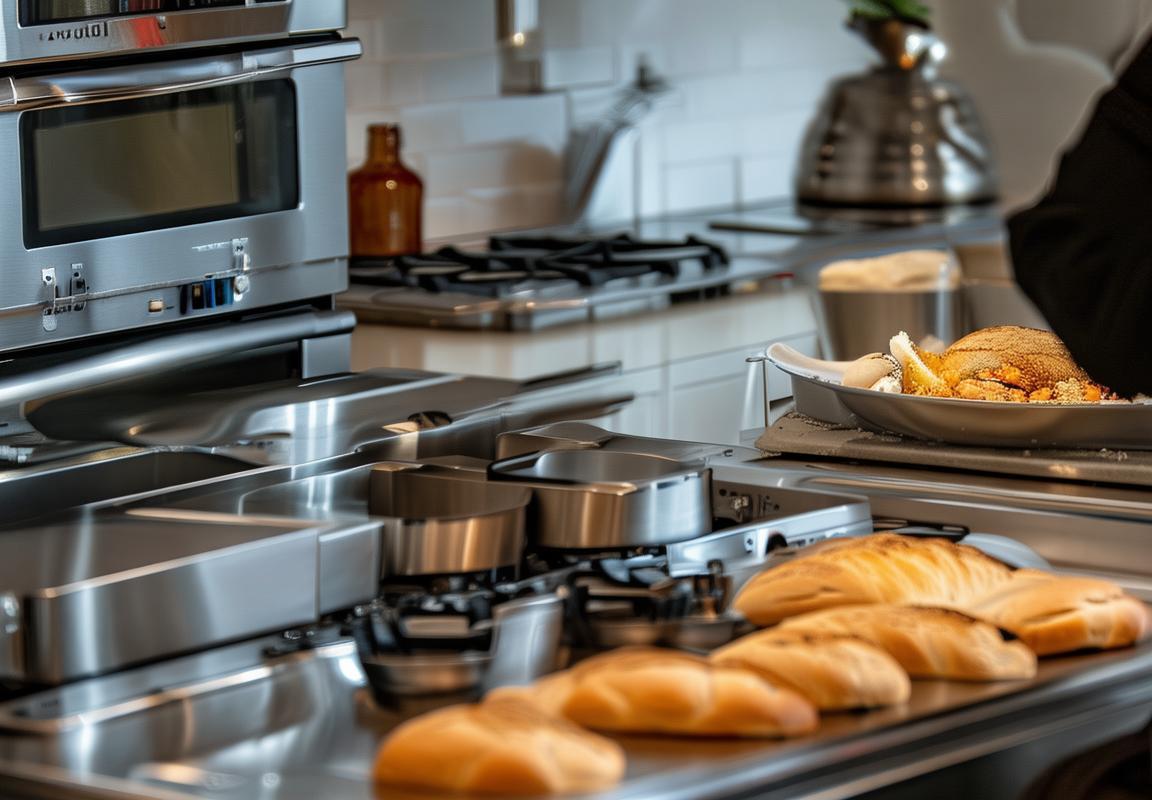
What Makes a Kitchen Kosher?
Understanding the concept of a kosher kitchen can sometimes feel like navigating a complex maze. The term “kosher” originates from Jewish dietary laws, known as kashrut, which dictate the preparation, storage, and consumption of food. Here’s what it takes to make a kitchen kosher:
-
Separate Zoning: A kosher kitchen is designed to prevent cross-contamination. It typically includes designated zones for meat and dairy products. This separation is crucial because under kashrut, meat and dairy cannot come into contact with each other during preparation or storage. Meat utensils, cutting boards, and cookware must be kept entirely separate from dairy items.
-
Separate Utensils and Dishes: In addition to the physical separation of zones, every utensil and dish must also be dedicated to either meat or dairy. This means that if you have a set of dishes used exclusively for meat, you cannot use them for dairy without a thorough cleaning to ensure no residue remains. The same goes for pots, pans, and any other cooking tools.
-
Proper Cleaning: Maintaining a kosher kitchen requires meticulous cleaning. All surfaces, utensils, and dishes must be cleaned thoroughly after each use. Special attention is given to removing any non-kosher substances, such as meat or dairy residue, as even a small amount can invalidate the kosher status of the kitchen.
-
Water and Salt: Water and salt play a unique role in kosher kitchens. Water that has been used for meat must be discarded and purified before it can be used for dairy. This purification process is called “blessing the water.” Salt, too, is treated with respect; it must be kept in a separate container from other ingredients to avoid any cross-contamination.
-
Kosher Certification: Many products available in stores are certified as kosher by religious authorities. This certification ensures that the product adheres to the strict guidelines of kashrut. When purchasing ingredients or appliances for a kosher kitchen, it’s essential to look for the kosher symbol or certification from a recognized authority.
-
Preparation of Meat and Dairy: There are specific rules for the preparation of meat and dairy products. Meat must be properly bled and salted before being cooked, and dairy products must be derived from animals that have been properly milked. Additionally, the utensils used to prepare meat and dairy must be kept separate from one another.
-
Avoiding Non-Kosher Ingredients: A kosher kitchen avoids certain ingredients that are considered non-kosher, such as pork, shellfish, and other animals not deemed kosher by Jewish law. This also includes any products that have been processed in a manner that violates kashrut.
-
Separate Equipment for Non-Kosher: If a kitchen is not strictly kosher but does require the preparation of non-kosher foods for guests or other reasons, there must be a separate set of equipment. This includes cookware, utensils, and even a separate sink to prevent any mix-ups.
-
Kosher by Design: In a kosher kitchen, the design itself plays a significant role. Countertops are often made from materials that are easy to clean and sanitize, such as stainless steel or natural stone. The layout of the kitchen ensures that the flow of food preparation doesn’t inadvertently mix meat and dairy.
-
Kosher for Passover: During the Jewish holiday of Passover, which commemorates the Exodus from Egypt, an additional set of rules called “kashrut for Passover” or “Pesach” must be followed. This includes removing all chametz (leavened products) from the kitchen and using special Passover-specific utensils and appliances.
The meticulous attention to detail in a kosher kitchen is not just about following religious laws; it’s about maintaining purity and respect for the food. The process can be time-consuming and requires dedication, but for those who adhere to kashrut, it is a deeply meaningful aspect of their daily lives and traditions.
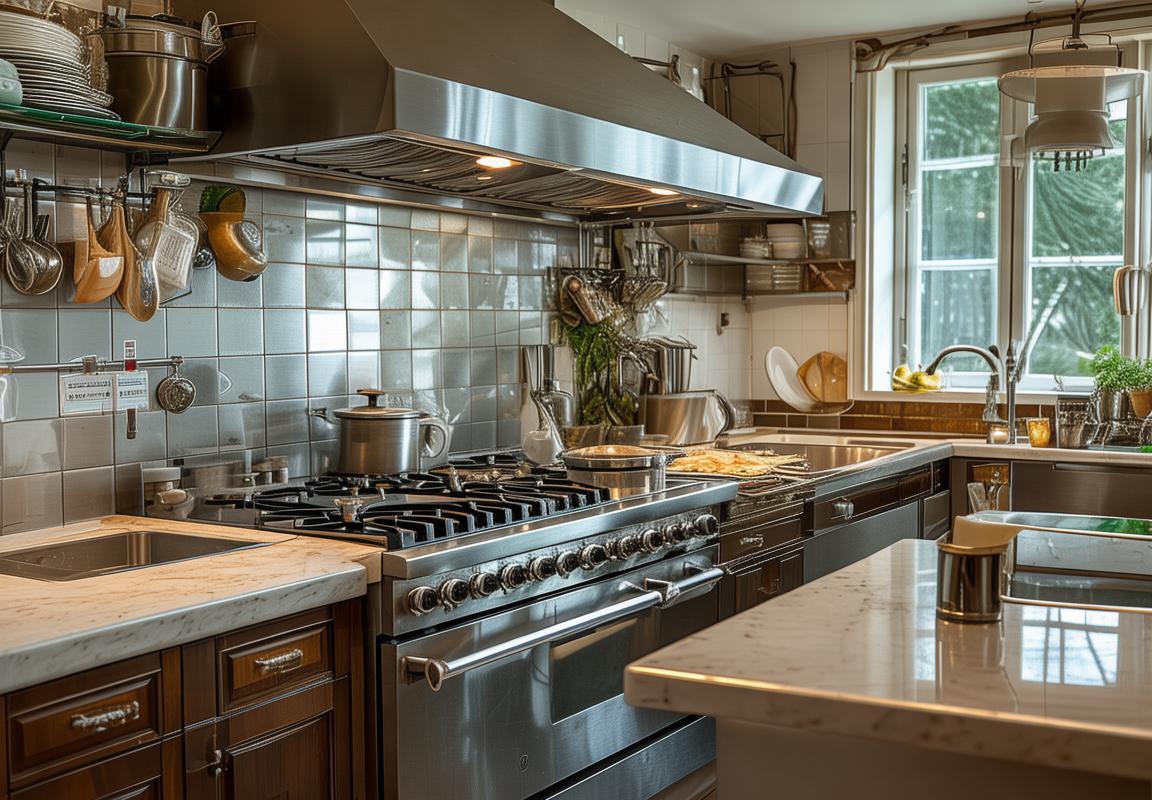
Top Features to Look for in Kosher Appliances
In the quest for a fully kosher kitchen, the appliances you choose play a pivotal role. Here are some top features to consider when selecting kosher kitchen appliances:
Separation and SimplicityLook for appliances that have clear, designated areas for meat and dairy. For instance, a refrigerator with separate compartments for meat and dairy products ensures that no cross-contamination can occur. Simplicity in design can also simplify the kosher cooking process, as it allows for straightforward understanding and use.
Non-Synthetic MaterialsKosher appliances should be made from natural, non-synthetic materials. This is because certain materials can absorb flavors, which might render them non-kosher if they have been in contact with non-kosher food. Opt for stainless steel, ceramic, or glass over materials like plastic, which may contain synthetic elements.
Adjustable ThermostatsA kosher kitchen often requires precise temperature control to ensure that food is cooked to the correct degree. Appliances with adjustable thermostats allow for the exact temperature needed for different types of kosher cooking, whether it’s boiling water or baking bread.
Enameled Pots and PansEnameled cookware is a great choice for kosher kitchens. The enamel coating prevents food from sticking and adhering to the surface, which can make cleaning and ensuring kashrut more challenging. Additionally, enameled pots and pans can be used for both meat and dairy dishes, as long as they haven’t been used with non-kosher products before being dedicated to a specific category.
Easy-to-Clean SurfacesIn a kosher kitchen, cleanliness is paramount. Look for appliances with surfaces that are easy to clean and maintain. This includes smooth, non-porous surfaces that can be wiped down without the risk of food particles becoming trapped. Steam cleaners and self-cleaning ovens can also be beneficial for maintaining a kosher kitchen.
Heatable Appliances with Clear Temperature IndicatorsFor ovens, stovetops, and other heating appliances, it’s important to have clear temperature indicators. This ensures that you can maintain the required temperatures for different types of cooking without the risk of overheating or undercooking. Clear gauges or digital displays can be particularly useful for precise kosher cooking.
Appliances with Removable PartsHaving appliances with removable parts, such as dishwashers with removable racks or ovens with removable shelves, can make cleaning and sanitizing much easier. These parts can be dedicated to specific food categories and can be thoroughly cleaned before being used again.
Appliances Designed for Batch CookingBatch cooking is a common practice in kosher households, as it allows for the preparation of large quantities of food at once. Appliances that are designed for batch cooking, such as large cooktops or ovens that can accommodate multiple dishes at once, can streamline the cooking process and reduce the need for cross-contamination.
Dedicated Sinks and CountertopsWhile not always considered appliances, dedicated sinks and countertops are crucial for maintaining kashrut. Look for appliances that can be paired with a dedicated sink and countertop area, which should be separate from the rest of the kitchen to avoid any possibility of cross-contamination.
Appliances with Kosher CertificationLastly, always check for kosher certification. Many appliance manufacturers offer models that are certified by recognized kosher authorities. This certification ensures that the appliance meets the necessary standards and has been inspected to confirm its kashrut compliance.
In summary, when shopping for kosher appliances, prioritize those that offer clear separation between meat and dairy, are made from natural materials, have precise temperature controls, are easy to clean, and come with features that simplify the process of maintaining kashrut. By selecting appliances with these features, you can create a kitchen that is both functional and in harmony with kosher dietary laws.
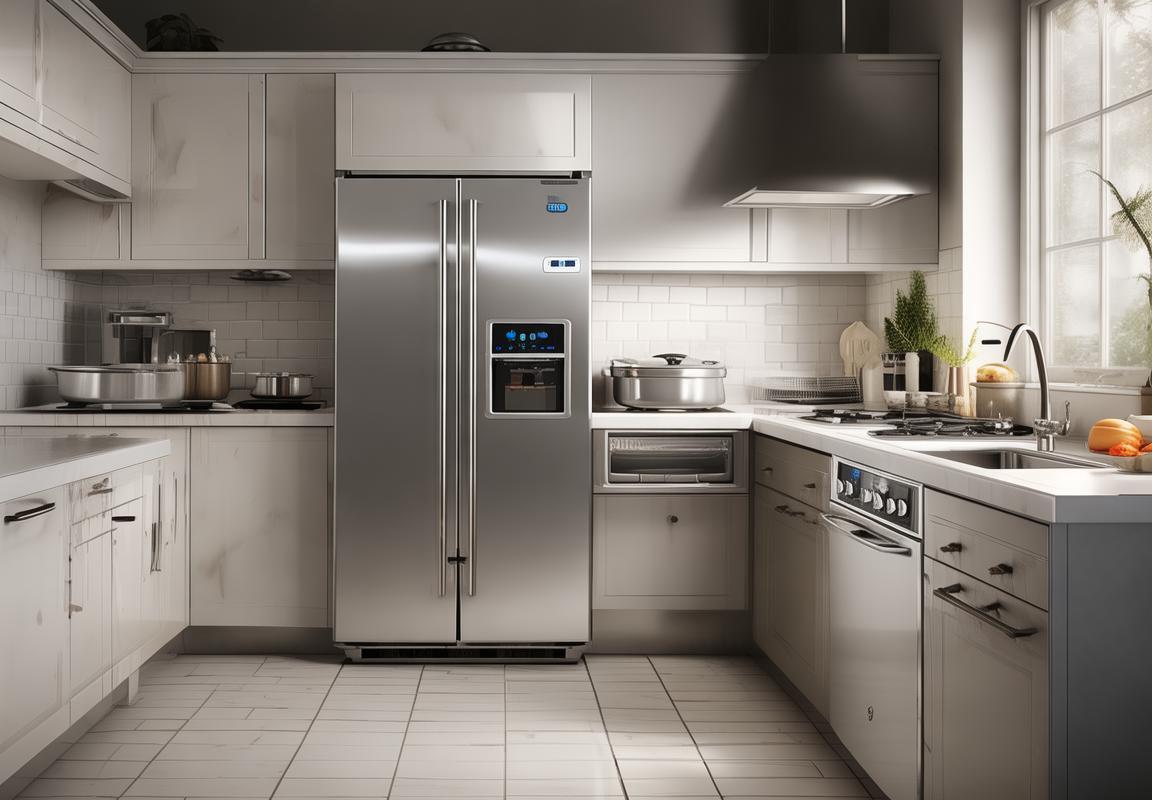
Best Kosher Kitchen Appliances on the Market
In the world of kosher kitchens, finding appliances that adhere to the strict guidelines of Jewish dietary laws is essential. Here are some of the best kosher kitchen appliances on the market, each designed to meet the needs of those adhering to kosher standards without compromising on quality or functionality.
-
Kosher Ovens – Whether you’re baking a classic challah or a sumptuous roast, a kosher oven is a cornerstone of any kosher kitchen. Look for models that offer a combination of even heat distribution and precise temperature control. The Gaggenau Combi Oven, for instance, provides both conventional oven and convection capabilities, ensuring your baked goods come out perfect every time.
-
Kosher Refrigerators – Refrigerators play a crucial role in kosher kitchens, as they store both kosher and non-kosher items. When shopping for a kosher refrigerator, opt for one with clear separation and dedicated shelves for each type of food. The Liebherr Frostless Refrigerator offers a variety of configurations, including dual-zone systems that keep dairy and meat separate, ensuring compliance with kosher laws.
-
Kosher Stoves – The stove is another essential appliance in a kosher kitchen, as it’s where much of the cooking takes place. A kosher stove should have separate burners or zones for meat and dairy cooking. The Viking Professional Gas Range provides dual fuel options, with one side for gas and the other for electric, allowing for versatile cooking while maintaining kosher standards. The smooth-top design also adds a sleek, modern look to your kitchen.
-
Kosher Dishwashers – Dishwashers are a game-changer in kosher kitchens, as they can handle the cleanup of both meat and dairy dishes without the need for separate sinks. The Miele Dishwasher features a sophisticated filter system that prevents cross-contamination, ensuring that your dishes are spotless and kosher. Its quiet operation and ability to handle a variety of dish sizes make it a top choice for kosher households.
-
Kosher Blenders and Food Processors – For those who enjoy preparing homemade meals, a kosher blender or food processor is a must-have. The Breville Control Grip Blender offers precision and power, making it ideal for making everything from smoothies to dough. Its removable parts are easy to clean and are dishwasher-safe, adding to its convenience.
-
Kosher Microwaves – A microwave can be a great tool for reheating leftovers or quickly cooking a meal. When choosing a kosher microwave, look for models that have a clear and easy-to-read control panel, as well as a durable interior. The Samsung Microwave Oven with Inverter Technology provides consistent heating and a sleek design that fits seamlessly into any kitchen.
-
Kosher Toaster Ovens – For those who love toasting bread or baking small batches of cookies, a kosher toaster oven is a convenient option. The Cuisinart Toaster Oven with Convection Technology offers the convenience of a countertop oven, with the ability to toast and bake with ease. Its spacious interior can accommodate a 9×13-inch baking pan, making it versatile for a variety of recipes.
-
Kosher Grills – If you enjoy outdoor cooking, a kosher grill is essential. Look for a grill with multiple burners that can be used separately for meat and dairy. The Weber Q Series Gas Grill provides precise temperature control and is designed with a fold-down side table and built-in storage, making it a great choice for a kosher kitchen.
-
Kosher Coffee Makers – A coffee maker is a staple in many homes, and finding a kosher one is no different. The Breville Barista Express Coffee Machine offers a professional-grade brewing experience, with the ability to make espresso, cappuccino, and latte. Its stainless steel construction and easy-to-use interface make it a great addition to any kosher kitchen.
-
Kosher Kettles – A good kettle is essential for making tea or coffee, and a kosher kettle can be a stylish addition to your kitchen. The Zojirushi Glass Kettle not only looks beautiful but also boils water quickly and evenly. Its automatic shut-off feature adds a safety element, making it a practical choice for any kosher kitchen.
When selecting kosher kitchen appliances, it’s important to consider not only the appliance’s ability to comply with kosher laws but also its durability, ease of use, and overall aesthetic. The appliances listed here are among the best on the market, offering both functionality and the peace of mind that comes with knowing they meet the stringent requirements of kosher cooking.
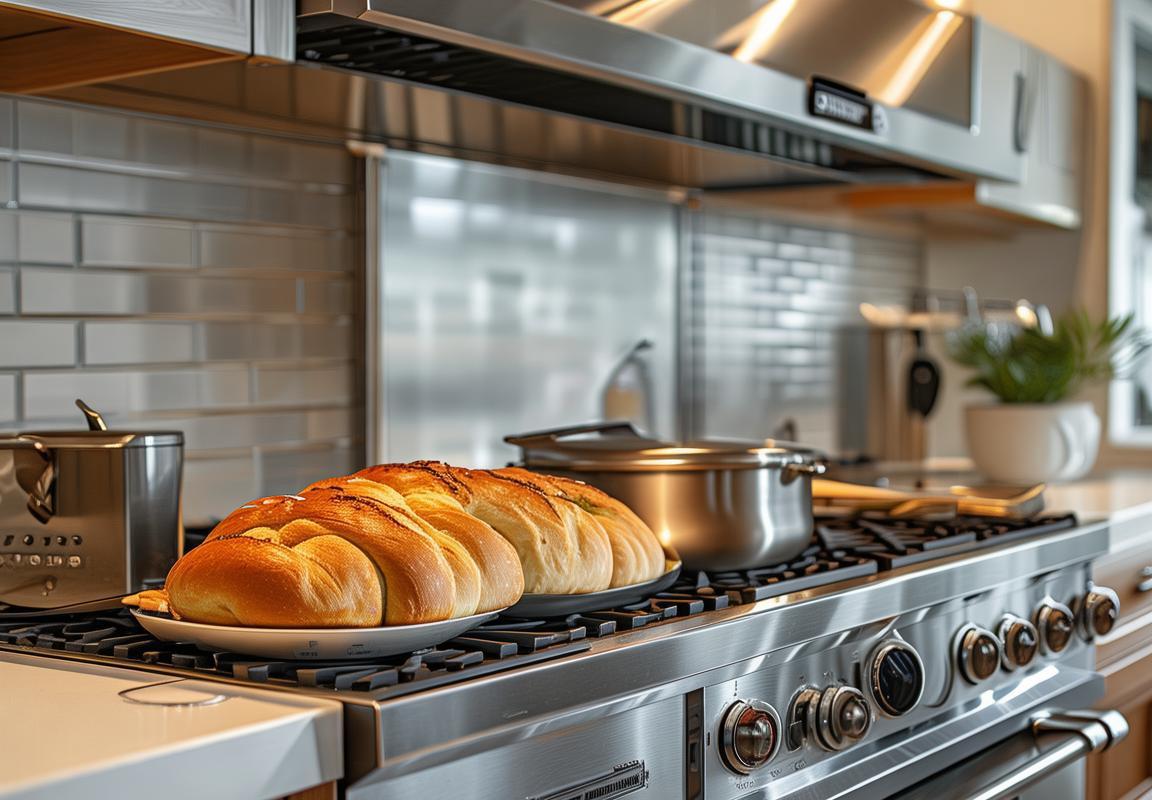
Benefits of Using Kosher Appliances
Maintaining a kosher kitchen is not just about adhering to religious dietary laws; it’s about creating an environment that ensures every meal is prepared and served with purity and respect. Kosher appliances play a crucial role in this process, offering a range of benefits that extend beyond the religious requirements. Here are some of the key advantages of using kosher appliances:
-
Purity and HygieneKosher appliances are designed to prevent cross-contamination, which is a fundamental aspect of kosher cooking. These appliances often feature non-porous surfaces that are easy to clean and sanitize, reducing the risk of cross-contamination between different types of food. This is particularly important for those who follow a strict kosher diet, as it ensures that all food is prepared in a manner that complies with dietary laws.
-
Ease of CleaningThe non-stick surfaces and seamless designs of kosher appliances make them incredibly easy to clean. This is not just a convenience; it’s a necessity in a kosher kitchen. Regular and thorough cleaning is essential to prevent the buildup of bacteria and food particles, which can lead to contamination. With appliances that are a breeze to clean, maintaining a kosher kitchen becomes less of a chore and more of a manageable task.
-
Longevity and DurabilityKosher appliances are often built to last. The materials used and the construction methods are chosen for their longevity, ensuring that the appliances can withstand the rigors of daily use in a kosher kitchen. This durability means that you’re not only investing in compliance with dietary laws but also in a long-term solution for your kitchen needs.
-
VersatilityMany kosher appliances are designed to be versatile, allowing for a wide range of culinary techniques. Whether you’re baking, roasting, or cooking, these appliances can handle the demands of various recipes. This versatility ensures that you can maintain your kosher diet without sacrificing the variety or quality of your meals.
-
Energy EfficiencyModern kosher appliances often come with energy-saving features that can help reduce your utility bills. From energy-efficient ovens to LED lighting, these appliances are not only compliant with kosher regulations but also environmentally friendly. This dual benefit is a win for both your wallet and the planet.
-
Health and SafetyThe design of kosher appliances often includes safety features that protect users and prevent accidents. For example, appliances with automatic shut-off functions can help prevent fires, and child locks can keep curious hands out of harm’s way. These safety features are particularly important in a kitchen where there may be children or the elderly present.
-
Peace of MindKnowing that your appliances are kosher can bring peace of mind to anyone who prepares or eats kosher food. It ensures that every meal is compliant with dietary laws, which can be particularly reassuring for those who are meticulous about maintaining their kosher lifestyle.
-
Community and Social AcceptanceIn many Jewish communities, following kosher laws is not just a personal choice but a social one. Using kosher appliances can help foster a sense of community and acceptance, as it demonstrates a commitment to the traditions and values shared by fellow community members.
-
Cultural PreservationBy using kosher appliances, individuals contribute to the preservation of Jewish culinary traditions. These appliances are a tool that allows for the continuation of age-old recipes and cooking techniques, ensuring that cultural heritage is passed down through generations.
-
Innovation and TraditionKosher appliances blend innovation with tradition, offering modern solutions that make it easier to adhere to dietary laws. This fusion allows for the integration of new technologies and advancements into a centuries-old practice, making it more accessible and enjoyable for contemporary users.
In conclusion, the benefits of using kosher appliances are multifaceted, offering practical advantages that extend far beyond the religious aspect of kosher cooking. From enhanced hygiene and safety to environmental responsibility and cultural preservation, these appliances are an essential component of any kosher kitchen.

How to Maintain Kosher Appliances
Understanding the kosher guidelines can seem daunting at first, but maintaining your kosher appliances doesn’t have to be a chore. Here’s a breakdown of the best practices to keep your kitchen tools in compliance with kosher laws:
-
Regular Cleaning RoutinesMaintaining a regular cleaning schedule is crucial. This ensures that no residue from non-kosher foods can contaminate your appliances. Wipe down surfaces after each use, especially if they’ve come into contact with non-kosher items.
-
Separate Cleaning ToolsUse dedicated sponges, cloths, and brushes for cleaning your kosher appliances. These tools should never touch non-kosher items to prevent cross-contamination. Keep them in a separate drawer or container to avoid any accidental mixing.
-
Hot Water for SanitizationKosher law requires appliances to be sanitized regularly. Hot water can be a powerful tool in this process. Fill your sink or a pot with hot water and add a small amount of detergent to create a sanitizing solution. Submerge your appliances in the water, ensuring all parts are thoroughly soaked.
-
Check for Crevices and JointsAppliances often have small crevices and joints that can harbor bacteria. Pay special attention to these areas when cleaning. Use a toothbrush or a small brush to scrub out any residue or food particles that may have accumulated.
-
Avoid Harsh ChemicalsSome cleaning agents can leave a residue that violates kosher laws. Opt for mild, non-toxic cleaners that won’t leave any traces on your appliances. Vinegar and baking soda are great natural alternatives that can effectively clean and sanitize.
-
Proper Storage of UtensilsWhen storing utensils, keep them in a designated area that is separate from non-kosher items. This could be a drawer or a cabinet specifically designated for kosher utensils. Make sure that any wooden utensils are stored away from metal ones to prevent any accidental contact.
-
Inspect Appliances RegularlyPeriodically inspect your appliances for any signs of wear or damage. Cracks or gaps can become a breeding ground for bacteria. If you notice any issues, address them promptly to maintain the kosher status of your kitchen.
-
Use Kosher Appliances for Kosher Foods OnlyThis might seem obvious, but it’s worth repeating. Use your kosher appliances exclusively for kosher foods. This includes avoiding any contact with non-kosher items, such as leaving non-kosher food containers on the countertop while using the appliance.
-
Consult with a Rabbi if in DoubtIf you’re ever in doubt about a specific cleaning practice or whether an appliance is suitable for kosher use, it’s always best to consult with a knowledgeable rabbi. They can provide guidance tailored to your specific situation.
-
Educate Family Members and GuestsEnsure that everyone in your household, as well as guests who may use your appliances, understands the importance of maintaining the kosher status. Provide clear instructions and encourage them to ask questions if they’re unsure.
-
Be Mindful of Electrical PartsCertain electrical components of appliances may have non-kosher materials. Be cautious when cleaning around these areas to avoid any contact with non-kosher substances. Always refer to the appliance’s manual for any specific cleaning guidelines.
-
Regular Appliance ServiceConsider scheduling regular maintenance checks for your appliances. This ensures that they are in good working order and that any potential issues are addressed before they become problematic.
-
Keep a Kosher Cleaning LogMaintaining a log of your cleaning and sanitizing activities can be helpful. It can serve as a reference point to ensure that you’re consistently adhering to kosher cleaning practices.
-
Be Prepared for EmergenciesAccidents can happen, and sometimes non-kosher residue might find its way onto your appliances. Have a plan in place for immediate cleaning and sanitizing. This might include having a small supply of kosher cleaning products on hand.
-
Understand the Importance of Ritual PurityKosher appliances are part of a larger ritual purity system in Judaism. Recognize that the care and maintenance of these appliances are not just about adherence to laws but also about maintaining the sanctity of your kitchen space.
By following these practices, you can ensure that your kosher appliances remain in compliance with Jewish dietary laws, making your kitchen a place of ritual purity and culinary delight.

The Kosher Kitchen: A Modern Necessity
In today’s diverse culinary landscape, the concept of a kosher kitchen has evolved beyond mere religious observance to become a symbol of purity and quality. A kosher kitchen, by definition, adheres to strict dietary laws that govern the preparation and consumption of food. These laws are deeply rooted in Jewish tradition and have been meticulously preserved over centuries. In this modern era, the kosher kitchen has emerged as a necessity for many, offering a host of benefits that extend beyond religious adherence. Let’s explore why the kosher kitchen is not just a tradition but a modern necessity.
A kosher kitchen is designed to ensure that all food items and kitchenware adhere to specific standards, making it a safe and health-conscious choice for many. The separation of meat and dairy, the requirement for food to be free from non-kosher ingredients, and the meticulous cleaning of kitchen surfaces are just a few of the practices that contribute to the purity of the kosher kitchen. This attention to detail fosters an environment where food allergies and dietary restrictions are respected, making it an inclusive space for individuals with varied dietary needs.
One of the most compelling reasons why the kosher kitchen has become a modern necessity is its ability to cater to health-conscious consumers. By strictly adhering to kosher laws, which often involve natural and whole food ingredients, a kosher kitchen promotes a diet that is rich in nutrients and free from preservatives and artificial additives. This approach to cooking and eating can lead to improved overall health and well-being, as the focus is on the quality and purity of the food.
In an increasingly globalized world, cultural exchange is at an all-time high. The kosher kitchen serves as a bridge between different culinary traditions, allowing for the fusion of flavors and techniques. By incorporating kosher principles, a kitchen can offer a wide range of dishes that cater to a diverse audience, making it a hub of cultural exploration and culinary innovation. Whether it’s a traditional Jewish dish or an international cuisine with a kosher twist, the modern kosher kitchen is a testament to the fusion of tradition and modern tastes.
The kosher kitchen also plays a significant role in fostering community and social cohesion. It provides a space where individuals from various backgrounds can come together to share meals, celebrate holidays, and strengthen their bond. The communal aspect of the kosher kitchen is particularly important during religious festivals and family gatherings, where the adherence to kosher laws is a unifying factor. This sense of community is essential in today’s fragmented world, where people often seek connection and shared values.
For those who are religiously observant, the kosher kitchen is a sanctuary of faith. It allows them to maintain their dietary laws with ease, ensuring that every meal is in accordance with their beliefs. The convenience of having a kosher kitchen means that adherents can enjoy the peace of mind that comes with knowing their food is prepared in a manner that is in line with their spiritual values. This is especially comforting in a world where food safety and integrity can sometimes be questionable.
Moreover, the kosher kitchen is a reflection of the respect for tradition and the pursuit of excellence. It requires a level of discipline and attention to detail that can be applied to other aspects of life. The principles of the kosher kitchen encourage individuals to take pride in their work, whether it’s in the preparation of food or the maintenance of their kitchen space. This sense of discipline and excellence can spill over into other areas of life, contributing to personal growth and success.
In the realm of business and entrepreneurship, the kosher market has grown exponentially, offering a niche for companies to cater to a specific segment of consumers. The demand for kosher-certified products has expanded to include a wide range of items, from grocery staples to household appliances. This growth is a testament to the modern necessity of the kosher kitchen, as it provides a market opportunity for businesses that value tradition and quality.
Lastly, the kosher kitchen is a symbol of adaptability. As society continues to evolve, so too does the kosher kitchen. Modern technology and innovative cooking methods have been seamlessly integrated into kosher kitchens, allowing for a balance between tradition and modern convenience. This adaptability ensures that the kosher kitchen remains relevant and appealing to a broad audience, even as the world around it changes.
In conclusion, the kosher kitchen is much more than a space for religious observance; it is a necessity in the modern world. It promotes health, fosters community, respects tradition, and offers a platform for cultural exchange. As we continue to navigate a diverse and interconnected world, the kosher kitchen stands as a beacon of purity, quality, and adaptability, proving that it is indeed a modern necessity.
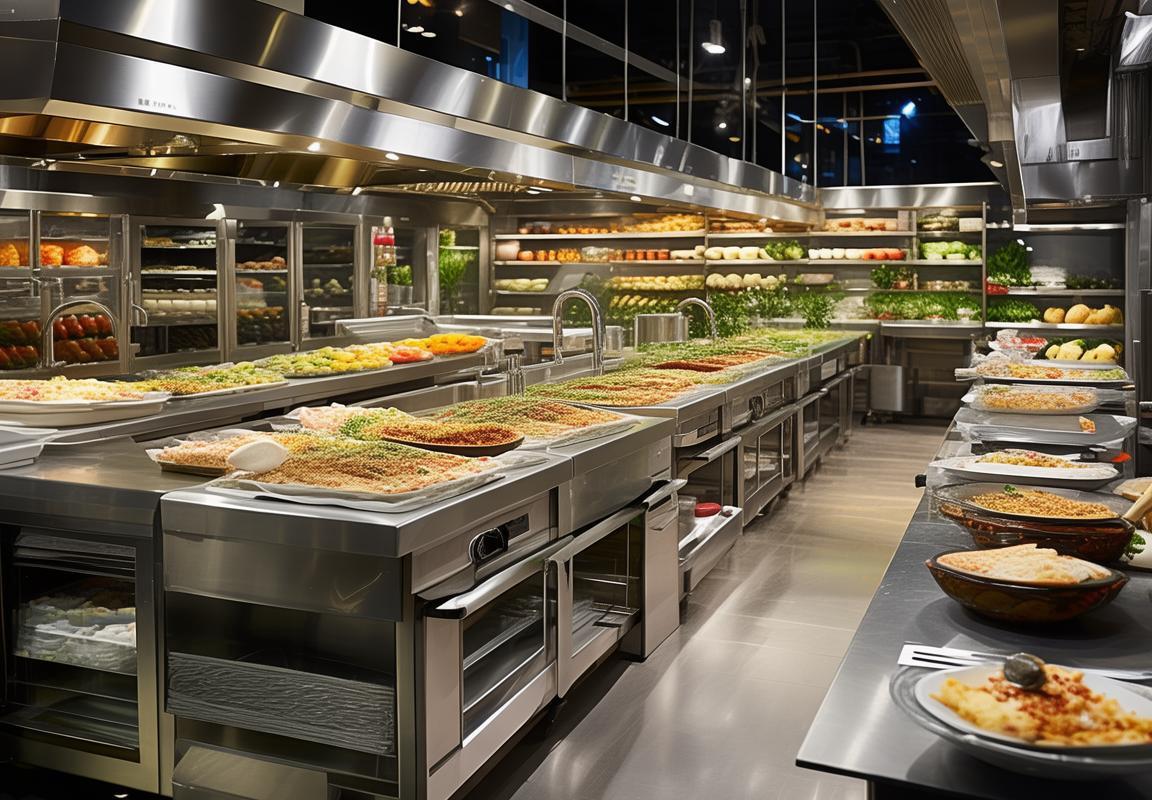
Conclusion: Embracing Tradition with Modern Convenience
In embracing tradition with modern convenience, the fusion of age-old practices and cutting-edge technology has birthed a new era in culinary experiences. This conclusion highlights the harmony between the two, showcasing how the Kosher kitchen has become not just a ritualistic space but a beacon of innovation.
The blend of tradition and modernity is evident in the meticulous attention to detail that Kosher appliances embody. From the design of their components to the materials used, each element is carefully chosen to ensure adherence to Jewish dietary laws. Yet, these appliances are far from outdated; they are sleek, efficient, and often feature smart technology that enhances the cooking process.
The convenience of modern Kosher appliances lies in their seamless integration into contemporary lifestyles. They cater to busy families, food enthusiasts, and anyone who values the sanctity of Kosher cooking without sacrificing the ease of modern living. With features like programmable timers, touchscreens, and intuitive interfaces, these appliances make the cooking experience more accessible and enjoyable.
Moreover, the aesthetic appeal of these appliances is undeniable. They are designed to complement modern kitchen aesthetics, offering a sleek and sophisticated look that blends in effortlessly with any kitchen decor. The sleek stainless steel and glass finishes not only add a touch of elegance but also ensure that the appliances are easy to clean, maintaining the cleanliness and purity that are central to Kosher cooking.
In terms of functionality, Kosher appliances are engineered to handle a wide range of cooking methods, from boiling and steaming to baking and roasting. This versatility is crucial for adhering to the strict guidelines of Kosher cooking, which requires the separation of meat and dairy products. Appliances like double ovens and separate cooktops make it possible to cook meat and dairy simultaneously without any risk of cross-contamination.
One of the standout benefits of using Kosher appliances is the peace of mind they provide. Knowing that every meal prepared in these appliances is in full compliance with Jewish dietary laws is a comfort to many. This assurance extends to the entire household, fostering a sense of unity and shared values.
Another advantage is the educational aspect that Kosher appliances bring to the kitchen. They serve as a living reminder of the importance of tradition and the commitment to maintaining a Kosher lifestyle. For those who are new to Kosher cooking, these appliances can be a valuable learning tool, guiding them through the process and helping them understand the nuances of Jewish dietary laws.
In the realm of sustainability, Kosher appliances often lead the way. Many are energy-efficient and made with eco-friendly materials, reflecting a growing trend towards responsible consumption. This not only aligns with the values of many Kosher adherents but also contributes to a healthier planet.
Furthermore, the convenience of Kosher appliances extends beyond the kitchen. They can be used in a variety of settings, from homes to restaurants and even in communal kitchens. This versatility makes them a practical choice for those who lead an active lifestyle and may find themselves cooking in different environments.
The technological advancements in Kosher appliances also open up new possibilities for culinary exploration. Chefs and home cooks alike can experiment with new recipes and techniques, knowing that their appliances will handle the cooking process with precision and care. This liberation of creativity is a testament to the evolving nature of Kosher cooking, which continues to adapt and thrive in the modern world.
In conclusion, embracing tradition with modern convenience in the Kosher kitchen is not just about adhering to dietary laws; it’s about celebrating the rich tapestry of Jewish heritage while enjoying the benefits of modern technology. The harmony between the two ensures that the Kosher kitchen remains a vital and vibrant space, where tradition and innovation coexist harmoniously, feeding both body and soul.